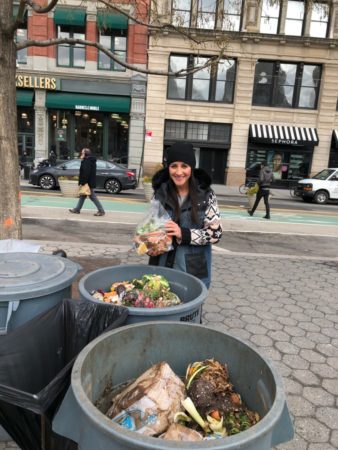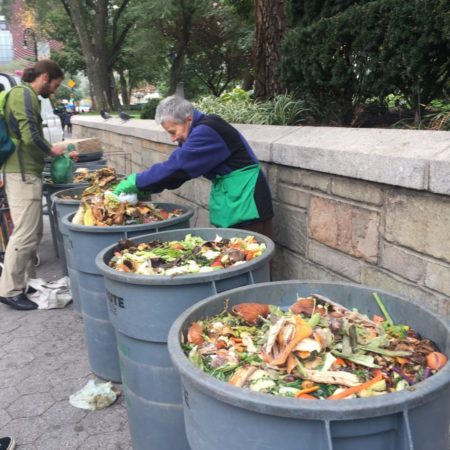In my adult lifetime, I have likely chopped hundreds of pounds of vegetables (rough estimate). Somewhere along the way, I realized how much waste my vegetable scraps – seeds, skins, stems and other unusable parts of the vegetable – produced. There have been times when it seems, I’ve had trashcans-full of food scraps. And here’s where it gets weird- I feel guilty knowing I could be putting these scraps to use with urban composting rather than relegating them to a landfill.
Nutrition school at IIN taught me about composting, the process by which organic food scraps turn into soil. At the time, I briefly considered it, but because I live in New York City where outdoor space is at a premium, I don’t have a garden which is the most likely place to use compost. I love the idea of a countertop composter, or compost crock, like this one – a small composting container that sits atop a kitchen counter, but it would take up too much valuable space in my New York City kitchen.
Needless to say, I relegated composting to the backburner. Of course, my guilt persisted everytime I delegated mounds of vegetable scraps to the trashcan. Determined to compost, I dug a little deeper and realized that I could be an active participant in urban composting and I could do it without a backyard or windowsill garden or even a composting container.
Urban Composting 101: How to Get Started
One // Do some research in your local area about where you can find collection bins and on which days and times.
Two // Know what food scraps are accepted. Typically, accepted items include fruit and vegetable scraps, egg shells, coffee grounds, tea bags, flowers and other non-greasy food scraps like rice and bread.
Three // Decide how you’ll store your food scraps at home until you bring them to the collection site. If you don’t want to invest in a compost crock, you can use a yogurt container, plastic milk jug or a paper or plastic bag. I use a plastic bag and store my food scraps in the freezer to eliminate odors. Using shredded newspaper at the bottom of your compost container can also help.
This is by no means an exhaustive guide to urban composting but hopefully, it gets you thinking about doing it yourself and proves just how easy it is!





Leave a Reply